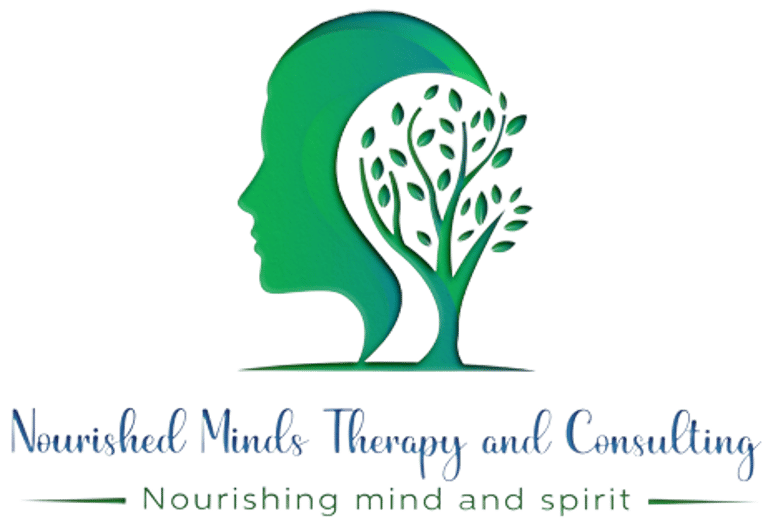

Narcissism is often associated with grandiosity, entitlement, and an insatiable need for admiration. While these traits are common in overt narcissists, a less recognized but equally damaging form of narcissism exists—covert narcissism (also known as introverted narcissism or closet narcissism). Unlike their overt counterparts, covert narcissists are more subtle in their behavior, making them harder to identify. However, they share the same goals and insecurities, ultimately seeking validation and control over others. This blog post explores what covert narcissism is, how it differs from classic narcissism, the roles covert narcissists may play in your life, and how to protect yourself and heal from their impact.
What Is a Covert Narcissist?
A covert narcissist is someone who exhibits narcissistic traits in a less obvious and more understated manner. They may appear introverted, sensitive, or even humble, but these behaviors mask their deep-seated need for admiration and control. Unlike overt narcissists, who openly seek attention and praise, covert narcissists employ subtle tactics to achieve the same ends. They often present themselves as victims or martyrs (see my post on the Victim Triangle), using passive-aggressive behavior, guilt-tripping, and emotional manipulation to maintain their sense of superiority.
Key Differences Between Covert and Overt Narcissism
While both covert and overt narcissists crave admiration and validation, they express these desires differently:
Presentation:
Overt narcissists are more likely to boast about their achievements and seek the spotlight. In contrast, covert narcissists may downplay their accomplishments or feign humility to garner sympathy and admiration.Behavioral Tactics:
Overt narcissists use direct tactics like bragging, demanding attention, and dominating conversations. Covert narcissists, however, rely on indirect methods such as passive-aggressiveness, playing the victim, and giving backhanded compliments.Emotional Manipulation:
Both types manipulate emotions but in distinct ways. Overt narcissists may use intimidation and overt criticism, while covert narcissists employ subtle emotional manipulation, such as guilt-tripping and withholding affection.
Despite these differences, both types share a core insecurity and a deep-seated fear of inadequacy. They seek to protect their fragile self-esteem by exerting control over others and maintaining an image of superiority.
Roles Covert Narcissists May Play in Your Life
Covert narcissists can occupy various roles in your life, including as partners, parents, friends, or work colleagues/supervisors (to name a few). In each of these roles, they can have a significant impact on your mental health and well-being.
As a Partner:
In romantic relationships, covert narcissists may initially come across as sensitive and attentive. However, over time, their need for control becomes apparent. They may use tactics like the silent treatment, emotional withholding, and subtle criticism to maintain dominance. These behaviors can erode your self-esteem, leaving you feeling confused, inadequate, and anxious. The constant need to please them and avoid conflict can lead to a cycle of emotional exhaustion.As a Parent:
Covert narcissistic parents often use emotional manipulation to control their children. They may appear loving and caring, but their affection is conditional. They might withhold approval or use guilt to get their way. This inconsistent and manipulative behavior can result in long-lasting emotional scars, making it difficult for the child to develop a strong sense of self-worth and autonomy. Because this person(s) would have played out this role during critical stages of childhood development, the impacts can be far reaching and highly damaging. Complex trauma can sadly be a common outcome of having been raised by caregivers with these traits.As a Friend:
In friendships, covert narcissists may initially seem supportive and understanding. However, they can be envious of your successes and subtly undermine you. They may offer backhanded compliments, downplay your achievements, or create drama to divert attention back to themselves. You may also notice them discouraging you from bettering yourself in low-key ways, with statements such as, "Wow, give yourself a break, you study too much! or, "I don't know how you keep pushing yourself to get these promotions, you must not have a good work life balance!" It's one thing to help a friend understand how they may be overstressing themselves, but a covert narcissist's purpose is not to help you achieve more peace and balance--it's to ensure you never feel/appear "better" than them. Over time, this can create a toxic friendship dynamic where you feel undervalued and manipulated.As a Boss:
In the workplace, covert narcissists can be particularly challenging. They may micromanage employees, take credit for others' work, or create an atmosphere of insecurity and competition. Their subtle manipulation can lead to decreased job satisfaction, increased stress, and a toxic work environment. Employees may feel constantly on edge, trying to meet unrealistic expectations and avoid criticism.
How to Distance Yourself from a Covert Narcissist
Distancing yourself from a covert narcissist can be challenging, especially if they hold a significant role in your life. However, taking steps to protect your mental health and well-being is not only critical, it's time sensitive--the longer this personality type is in your life, the more detrimental of an impact they can have on your sense of self.
Set Clear Boundaries:
Establishing and maintaining boundaries is essential when dealing with a covert narcissist. Clearly define what behaviors are unacceptable and communicate these boundaries firmly. Be prepared for pushback, as covert narcissists may try to manipulate you into feeling guilty or selfish for asserting yourself.Limit Contact:
If possible, reduce the amount of time you spend with the covert narcissist. This can help minimize their influence on your emotions and mental state. If the person is a family member or someone you cannot completely cut out of your life, consider setting specific times for interaction and keeping conversations focused on neutral topics.Seek Support:
Talking to trusted friends, family members, or a therapist can provide valuable support and perspective. They can help you recognize manipulative behaviors and reinforce the importance of your boundaries. Professional help can be especially beneficial in navigating complex emotions and developing effective coping strategies.Educate Yourself:
Understanding covert narcissistic behaviors can empower you to recognize manipulative tactics and protect your mental well-being. Educate yourself about narcissism and the specific traits of covert narcissists. This knowledge can help you identify red flags and avoid getting entangled in their manipulative games.
Healing from the Wounds of a Covert Narcissist
Recovering from the emotional wounds inflicted by a covert narcissist can take time and effort. Here are some steps to help you heal:
Acknowledge Your Feelings:
It's essential to recognize and validate your emotions. It's normal to feel hurt, confused, and angry after dealing with a covert narcissist. Acknowledge these feelings and give yourself permission to experience them. Suppressing your emotions can prolong the healing process.Rebuild Your Self-Esteem:
Covert narcissists often undermine your self-worth, leaving you feeling inadequate. Engage in activities that make you feel good about yourself and remind you of your strengths. This could include pursuing hobbies, setting personal goals, or spending time with people who appreciate and support you.Seek Professional Help:
Therapy can be a valuable tool in healing from the emotional wounds caused by a covert narcissist. A therapist can help you process your experiences, work through any trauma, and develop healthier coping mechanisms. They can also provide guidance on setting boundaries and navigating complex relationships. Nourished Minds Therapy specializes in the treatment of attachment wounds, and consultations on how we can provide support are always free.Practice Self-Care:
Prioritize your physical and emotional well-being. Engage in regular exercise, eat nutritious meals, and ensure you get enough sleep. Incorporate practices like meditation, journaling, or other forms of self-care that help you feel grounded and centered. Taking care of your body and mind is crucial in the healing process.Forgive Yourself:
It's common to feel guilty or blame yourself for falling prey to a covert narcissist's manipulation. Remember that their behavior is not your fault. Forgive yourself for any perceived mistakes and focus on moving forward.
Covert narcissists are often challenging to identify due to their subtle and understated behavior. However, their impact on your mental health can be just as damaging as that of overt narcissists. Recognizing the signs of covert narcissism and understanding the roles they may play in your life can help you protect yourself and navigate these relationships more effectively. Your well-being is paramount, and it's okay to prioritize your peace of mind.






